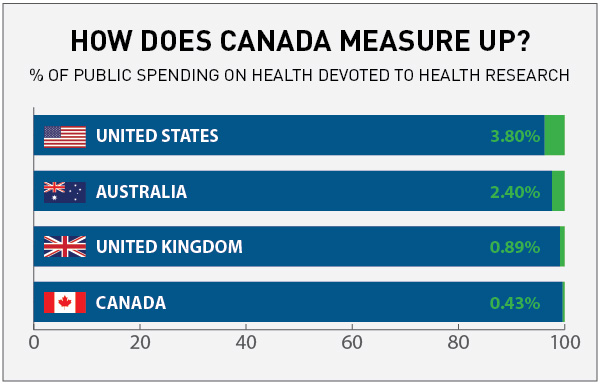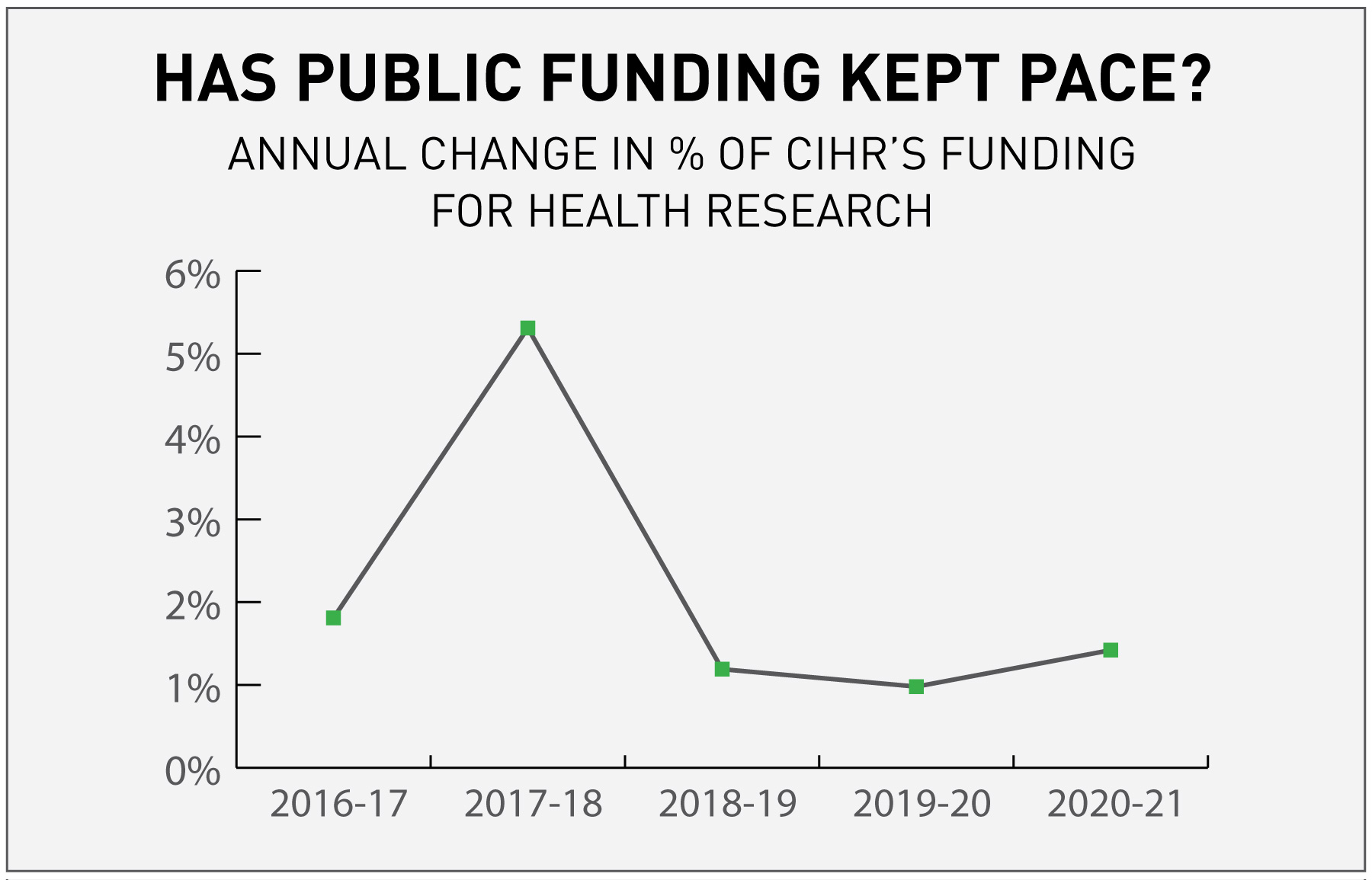March 16, 2021
Throughout the COVID-19 pandemic Canada’s health research community has clearly demonstrated the vital role it plays in helping get the country through a crisis. Indeed, the unprecedented speed with which COVID-19 research in Canada has progressed is a clear testament to the unwavering dedication and skill of our health research workforce.
However, the trying conditions our health and biomedical researchers have had to endure to get us to the point where thousands of Canadians are getting vaccinated every day are a national embarrassment. This important workforce, upon which we rely to develop treatments for our deadliest diseases, faces daily uncertainty brought on by unpredictable fluctuations in their funding. This can lead to interruptions in their research or even having to start again from scratch. This is no way to treat our country’s best and brightest.
Alas, this hardly new.
For decades, the federal government has underfunded the health and biosciences research sector, leading to stalled research and missed opportunities in critical areas. This sector’s rattletrap funding, which must rely far too heavily on the benevolence of private donors, persists despite numerous reports that echo HealthCareCAN’s own calls to action. These reports, like the Fundamental Science Review report and most recently the Industry Strategy Council’s report, both identify increased and predictable funding for research as necessary for economic prosperity. Canada cannot afford to remain complacent in this matter, not when it comes at the cost of Canada’s health research workforce and our economic resiliency.
On February 23rd, the Canadian Institutes of Health Research (CIHR) released an ambitious Action Plan with strategies for strengthening Canadian health research capacity. In theory, this is good news, but without increased federal funding for research to the tune of two per cent of public spending on health, CIHR’s grants and awards programs have little hope of fully realising the potential of this sector.
While the 2018 federal budget contained important new investment in health research through CIHR specifically, that timeline will be ending next year and we are still lacking. To put it plainly, public spending on health research is flatlining.
Source: https://cihr-irsc.gc.ca/e/51283.html
We can and must do better.
Canada must make supporting health research a bigger priority than we have in the past. If we compare how we measure up against competing countries like the United States, Australia and the United Kingdom, Canada’s portion of public spending on health devoted to research is severely lacking. Where each of these countries devote 3.8%, 2.4% and 0.9%, respectively, Canada stands in stark contrast, devoting just 0.43% of its total health spending on health research.

Sources: Tax Policy Centre, AAAS, AIHW, HM Treasury, CIHI, CIHR
This contrast is most apparent in hospital research settings. In a recent CTV article, Dr. Srinivas Murthy, Clinical Associate Professor at the University of British Columbia, was quoted as saying that clinicians in the United States are better equipped to conduct “good quality research at the bed side,” while in Canada, separate budgets, personnel and infrastructure make it difficult to get clinical research up and running quickly, especially in response to a crisis like the pandemic.
Gone are the days where we can lean on Canada’s health research sector’s past successes as indicators of our present standing on the world stage. If this sector is to command the international spotlight once again, which would help to both retain its hard-working and dedicated researchers and attract global talent and investments, the federal government must make good on its promise to “build back better” by first building a solid foundation of federal support.
As François-Philippe Champagne, Minister of Innovation, Science and Industry, said so eloquently recently, “Great science and research is the first step in driving innovation. Now more than ever, Canadians are looking to their researchers to develop innovative solutions to real-world problems.”
As we go forward, Canada’s researchers are eager to do their part, it’s now up to the federal government to take action. Time is of the essence.
Paul-Émile Cloutier, President & CEO
HealthCareCAN
Related:

The federal government is failing Canadian health research – Op-Ed by Paul-Émile Cloutier, president & CEO

Investments in Canada’s health research must be part of solution
Read the article as it originally appeared in The Hamilton Spectator By Paul-Émile Cloutier and Dr. David Hill As discussions around health transfers and the future of health care heat up, one aspect consistently overlooked is health research. Increasing federal investment in health research is key to addressing Canada’s current and future health care challenges,

For a world-class health system, Canada needs to think bigger.
November 28, 2022 Read the story as it originally appears in The Hill Times Canada must break down the silos in our health system, adjust our delivery models, modernize physical and digital infrastructure, and support a better flow of data, information, and resources. As anyone working in health care or trying to access health services






